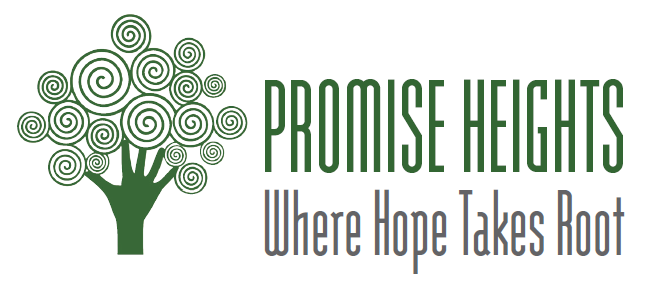Mobilizing Community Based Crime Reduction Teams
Crime Reduction in Baltimore Requires a Multi-faceted Team-based Approach. (Image Credit: "PB150007" by adcrumpton, licensed underCC BY-NC 2.0)
“While you can reach and help change people when they’re most vulnerable–what they really need to help make essential transitions are things like emergency funding, jobs, housing, and more. Yet crucial opportunities like these are still lacking in this city.”
Samirah Abdul-Fattah, Program Management Specialist
Consider this: do you recall our daily life during the middle of March? Samirah’s first day in Promise Heights began on Monday, March 16, three days after the University of Maryland Baltimore initiated remote work due to the pandemic. That was Samirah Abdul-Fattah first day on the job to manage an important grant-funded project. There was no new office to welcome her, no water-cooler chats where she could casually meet her colleagues, and no one-on-one, face-to-face opportunities to quickly move her projects forward. It was as if she was the starting runner in a relay-race, the stopwatch had just been triggered to “go!” and she was left to her own devices.
Fortunately, Samirah brings several decades as a dedicated and experienced professional who has successfully moved grant-driven projects forward in Philadelphia and Trenton. She’s equipped with the background and perfect skillset to quickly gather and activate essential collaborative partners: her key focus in Promise Heights is to build and manage the Community Based Crime Reduction program that was funded by the Department of Justice in 2016. Now that she’s been at her job for several months, it was helpful to hear how she’s built a career developing and managing significant grant-based projects.
“I've worked with AmeriCorps probably since the beginning—we were one of the first cohorts in Philadelphia. This is way back in the ‘90s. I’ve worked on and off with AmeriCorps for over twenty years. Same organization… under different names, but they keep calling me back!” [She instantly broke into hearty laughter.]
“When I first started with them, I was a site manager in Philadelphia. I also received a U.S. Department of Justice grant. And then I went on to become their first City Program Director, and then I left.” [More laughter.]“And then I came back when they were Education Works. And I served for about—almost two years as their Director of Recruitment, until we lost our Federal grant. And then I worked for the Robert Wood Johnson Foundation… twice.” [As if on cue, more laughter.]
“The last time I worked with them was on an initiative focused on maternal health and the zero to three [age] population. It was a $20 million grant funded through Children's Futures in Trenton, New Jersey, and it was solely for families in Trenton. And then I went on to work in the domestic violence sector.
Usually everything I've worked on has been grant-driven. So, if the grant dries up, it’s not renewed. The most important part about these kinds of projects is to diversify the funding. At the time I was laid off from AmeriCorps, we lost our federal grant, and when we lost that grant, we our staff was significantly reduced.”
This time, there was no laughter, as clearly Samirah invests all of herself in these programs. Her disappointment is palpable for a moment before she shares more about her busy schedule of recent, as well as the importance that sufficient funding offers the success of any initiative.
Since arriving in Promise Heights four months ago, Samirah has been building crucial partnerships with essential grassroots teams to advance the mission of Maryland Communities United to organize and empower low income Marylanders to achieve transformative change on issues of racial, economic and social justice; to expand the Safe Streets Sandtown-Winchester public health program to reduce gun violence among youth ages 14 to 24; to engage a collection of McCulloh Homes’ residents and tenant association members seeking to build a safer neighborhood; and to create incentives with the Baltimore Police Department. At the core, Promise Heights role is to facilitate effective teamwork that will reduced community based crime in Upton/Druid Heights—a win-win for everyone.
Key to navigating these partnerships is to recognize that COVID-19 has made everything more difficult: it’s harder than ever to meet face-to-face. Urgent issues arise daily. In many ways, the pandemic has driven the narrative for many organizations and community groups. However, despite these and other roadblocks, Samirah has focused on building strength-based incentives that address and neutralize community violence by mobilizing Upton/Druid Heights residents, as well as engage crucial partnerships in the neighborhood. Given the success of related incentives in other cities, these results should expand well beyond the confines of 21217.
Our hope, while battling the pandemic and building on our strengths during this crucial time, we’ll continue advancing these partnerships with Samirah’s longstanding guidance, and we look forward to sharing more news and advances in the coming year.

